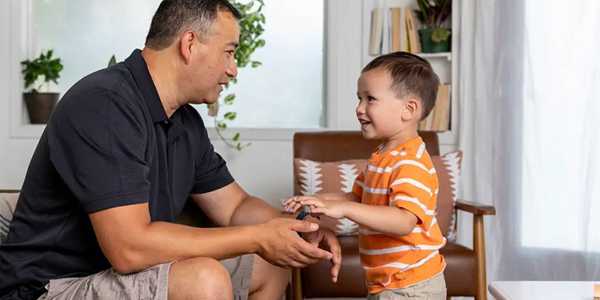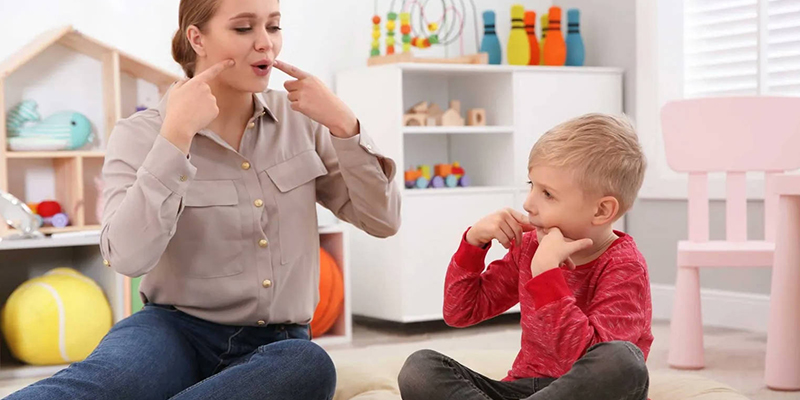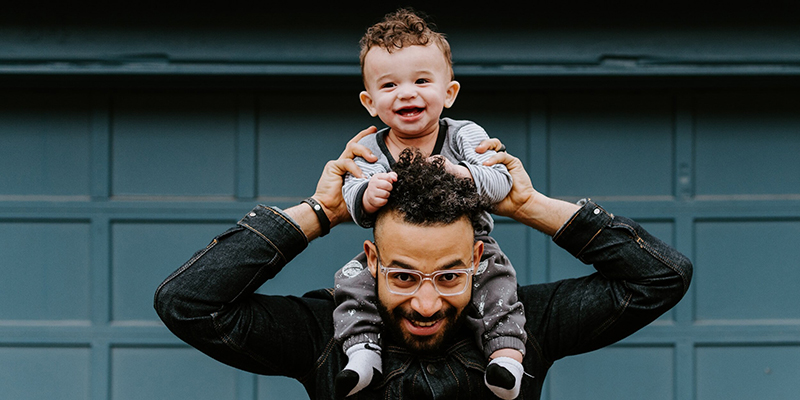
Fostering Early Speech: Encouraging Your Child's First Words
 Mother & baby
Mother & baby Baby's first words are magic-always an opening into worlds of communication and connecting. You, as a parent, provide the key to this amazing process-when you provide comfortable conditions and motivation for your child to explore the world of language. By integrating simple strategies into your everyday interactions, you're setting down the foundation of language with your little one, making the milestone of the first words worth it-and a journey in themselves.
Baby's first words always open into worlds of communication and connection. You, as a parent, provide the key to this fantastic process. You provide comfortable conditions and motivation for your child to explore the world of language. By integrating simple strategies into your everyday interactions, you're setting down the foundation of language with your little one, making the milestone of the first words worth it—and a journey in themselves.

Importance Of Early Language Development
Early language development will be one of the most critical factors in your child's future. Language is not only learned from the spoken word; it forms a foundation for effective communication, cognitive development, and the will to interrelate with others.
The Building Blocks For Future Success
The earlier children develop good language, the better their academic performances. This will later enable them to express themselves better, understand complex concepts, and communicate better with other children and their teachers.
Cognitive Skills
Language development contributes to a child's general cognitive development. While the child memorizes new words and their meanings, their brain draws new connections. These connections help develop problem-solving skills, critical thinking, and better world understanding.
Social-Emotional Growth
Language is the master of relationships and emotional regulation. The more children can describe their feelings and needs, the better they will be at regulating the interactions in social situations, building relationships, and being compassionate.
Teaching Your Baby His First Words Through Interaction
Talking About Everyday Events
Talk to your baby all day long to encourage language development. Describe your day, what you are doing, what you see, and what you feel. If you are fixing dinner, you could say, "Mommy is slicing a red apple. It's round and smooth." With this constant exposure, your baby connects the sounds she hears with the objects and actions in her world.
Response To Your Baby's Coos And Babbles
When your baby makes sounds, treat them as meaningful attempts at communication. Respond enthusiastically, maintaining eye contact and mimicking their sounds. This back-and-forth interaction, serve and return, is fundamental to brain development and language acquisition. It teaches your baby the basics of conversation and encourages them to vocalize more.
Use Gestures And Facial Expressions
Continue with appropriate gesticulation and expressions: point while naming an object, wave goodbye, or nod your head when saying "yes." This way, your multisensory approach will help your baby create a picture of associating the word with the meaning and keep a good platform for overall communication skills.

Utilizing Repetition And Reinforcement
Repetition and reinforcement are good at developing your baby's language. These two ways provide consistency and allow your little one to hold on tightly to new words.
The Power Of Repetition
Repeat specific keywords and phrases throughout the day. For instance, at feeding time with your baby, you could say the word "bottle" or "milk" every time you give it to them. The more they hear it, the better they will learn to associate the sound with an object or action. Remember that babies often hear a word before learning to internalize and repeat.
Reinforcing Through Context
Reinforce words by using them in other contexts. If you teach your child the word "dog," use it when you are outside to refer to dogs in books, videos, and outside. This helps the child understand that the word means your family dog and other dogs.
Pair words with actions or gestures to enhance understanding. When saying "up," lift your arms or pick up your baby. This multisensory approach creates stronger connections in your child's developing brain.
Positive Reinforcement
Celebrate your baby's attempts at communication, even if they're not perfect. When your child points to a ball and says "ba," respond enthusiastically: "Yes, that's a ball! Good job!" This positive reinforcement encourages further attempts at speech.
Encouraging Babbling And Vocalizations
When your baby starts to make sounds, celebrate! If they coo or babble, respond with excitement. This kind of response will encourage them to continue trying new sounds. Smile back, make eye contact, and imitate the sounds they are making. This is a conversation, and it helps your baby learn that conversation goes both ways.
Use Gestures And Facial Expressions
Add to the words with animated facial expressions and hand gestures while you then point at the object upon naming. Use exaggerated expressions to describe your feelings. These will act as visual clues to help your baby learn the word-object relationship. These will render your interaction all the more interesting and playful to the little one.
Sing Songs And Recite Nursery Rhymes
Music and rhymes comprise the most potent tools in a child's language development. The rhythm and repetitions of songs and nursery rhymes are easy for babies to remember. Sing lullabies, action songs, and simple rhymes throughout the day. These activities promote language skills and special bonding times with your child.
Creating a Language-Rich Environment
Surround Your Baby With Words
A baby should be introduced to the world of languages from day one. Describe your actions, surroundings, and free talks. Such an environment will enable them to learn words and phrases without apparent effort. You may tell your baby, "Mommy chops carrots. They are orange and crispy. Look, the knife goes up-down, up-down."
Gestures And Facial Expressions
Add expression to speech with nonverbal communication skills like pointing to things when naming them, exaggerating facial expressions to communicate feelings, and making simple hand gestures. This multimodal approach solidifies language learning and helps your baby match things with names. Wave when saying bye-bye or nod the head when saying yes.
Introduce Books Early
Make it a daily routine. Board books are appropriate for this age, with bright pictures and less text. While reading any text, point to the image and give its name. This will help your child get used to the words and aid in the love of books and learning. It does not matter if one doesn't go through each story; instead, the motive is exposure and entertainment, not the coverage.
Nurturing Your Child's Language Journey
As you start this exciting journey, remember that each child learns at their own pace. Your consistent steps in talking, reading, and chatting with your little one will give them firm ground to stand while building up their communication.
